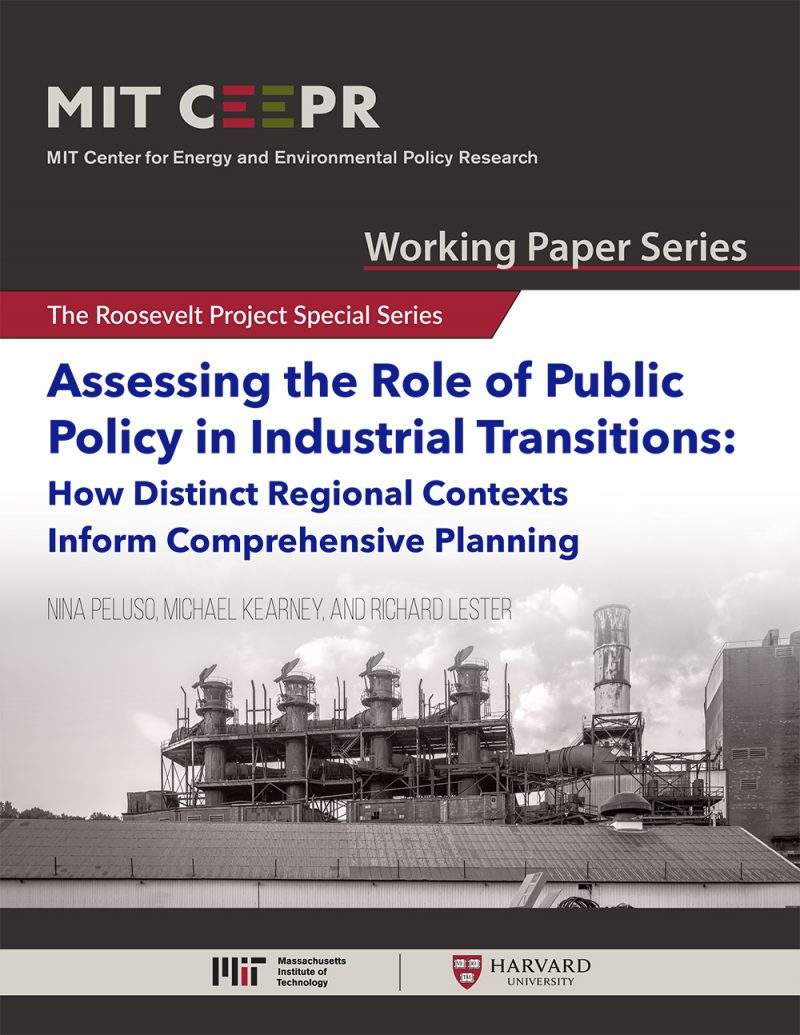Assessing the Role of Public Policy in Industrial Transitions: How Distinct Regional Contexts Inform Comprehensive Planning
Nina Peluso, Michael Kearney, and Richard Lester
September 2020
Major industrial transitions in the United States led to highly divergent community outcomes. As the nation transitions to a deeply decarbonized economy, understanding the drivers of community success in the face of these historical transitions is crucial. We examine historical US transitions and corresponding policy via a series of literature reviews and case studies. First, we examine literature around four key domains governing community development. Then, we use historical transitions in Pittsburgh and the Pacific Northwest to interrogate markers for regional success and geographical disparities. Finally, we investigate the recent case of the US transition from incandescent to LED lighting to identify specific policy recommendations. Our findings suggest that, at a regional level, policymakers should identify drivers of community well-being, nurture strong ties between core institutions, carefully utilize economic development corporation structures, and use caution when considering private-led development initiatives.



